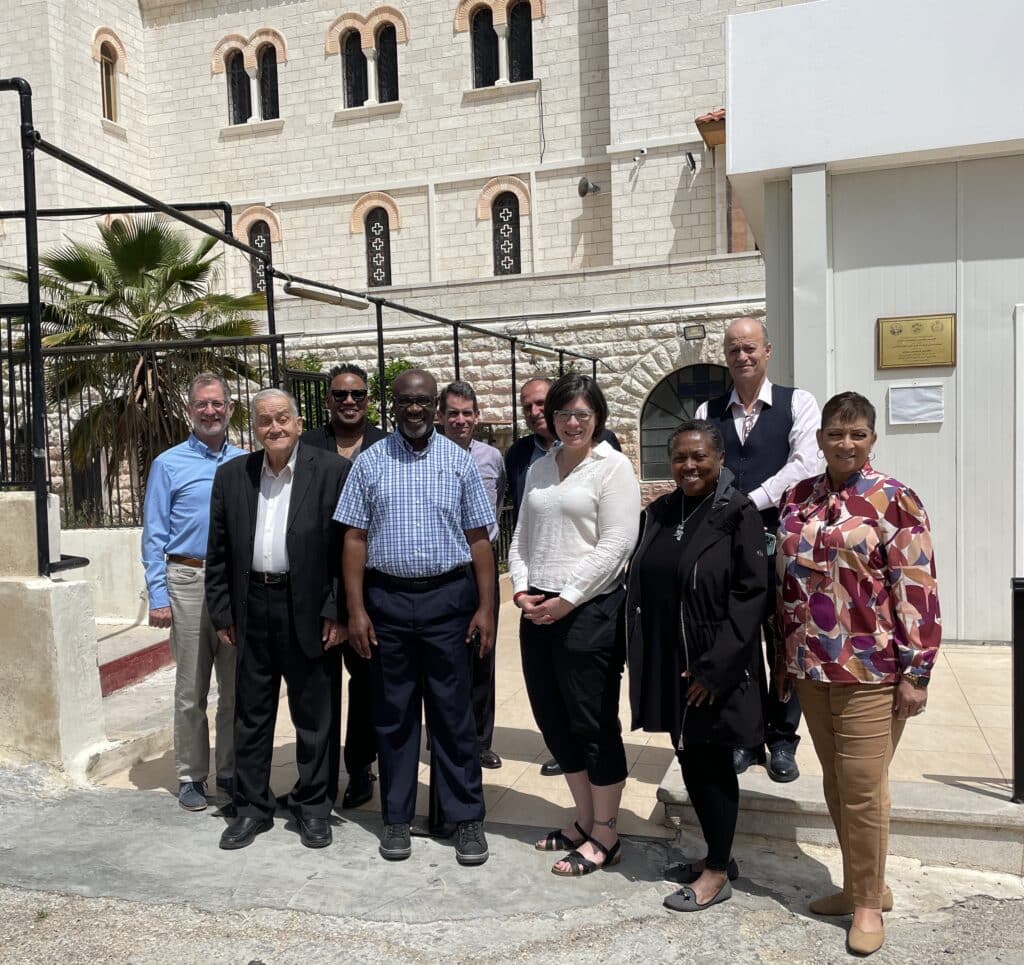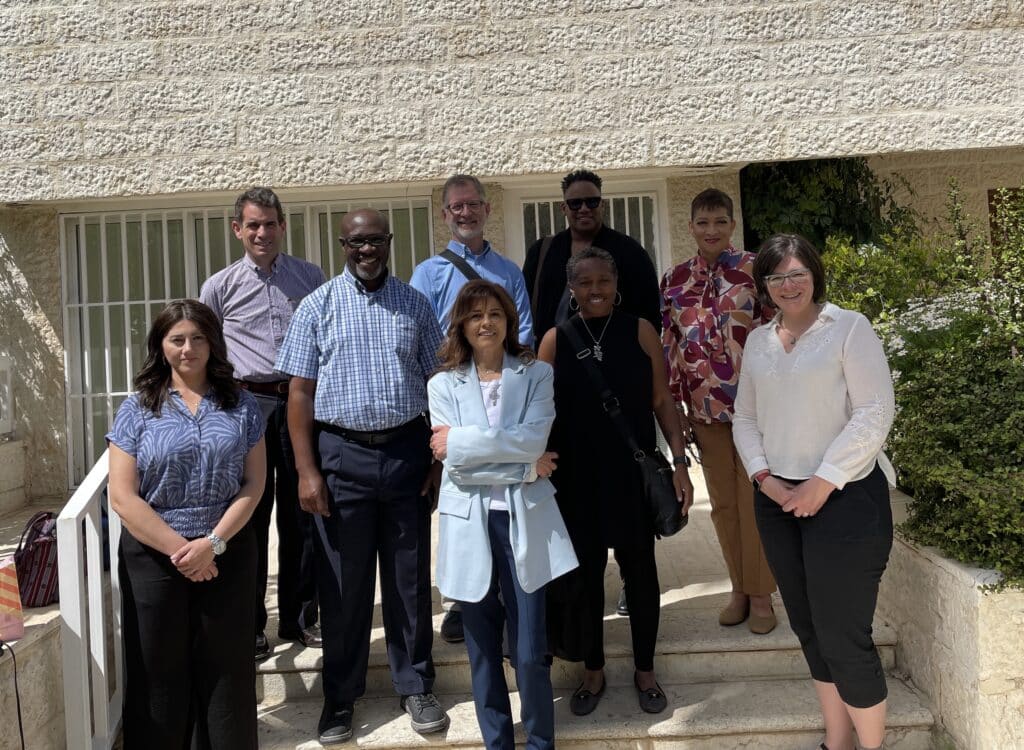Building Community
Middle East Ecumenical Delegation Day 4, April 22, 2023
Written by Rev. Dr. Karen Georgia Thompson

The Middle East Council of Churches (MECC) provides a variety of programs in the refugee camps throughout the region and in Jordan where there is focus on physical and mental health services, economic empowerment, and education as MECC addresses the needs of Syrian, Iraqi, and Palestinian refugees in Jordan. The delegation visited with the MECC Department of Service for Palestinian Refugees (DSPR) and the MECC/Orthodox Initiative. Through these two programs, MECC is providing a comprehensive set of services which are addressing the needs of refugees in Jordan. We arrived in Jordan following the end of Ramadan during the Eid al-Fitr celebrations which meant many offices were closed.
There are 13 Palestinian refugee camps in Jordan, providing homes for displaced Syrians and Palestinians. In the camps, there is high unemployment with residents in the camps being at high risk for substance abuse, violence, and harassment. The camps are overcrowded, and most recently funds to the United Nations Relief and Works Agency for Palestine Refugees in the Near East (UNRWA) were cut resulting in a reduction of services to the Palestinian refugee camps throughout the region.

Fares Sweis and Odeh Sweis provided an overview of the physical and mental services as well as the economic empowerment programs undertaken through DSPR. These services are provided through primary health care clinics and home visits and include follow-up visits to mothers and pregnant women in the targeted areas of prenatal care, antenatal care, postnatal care, and family planning. They are also providing care for infants under five years old, with growth and developmental screening, including supplements and vitamins for children and adults suffering with anemia and malnutrition. The provision of psychosocial support is also prioritized to assist families as they continue to navigate the stresses and traumas that accompany life in the camps. They serve about 4,500 patients annually through the health initiatives.
Through the economic empowerment program, DSPR trains marginalized groups of young men and women in specializations which will result in income generation through small and medium projects. These specializations involve skills training which will allow individuals to generate income to support themselves and their families and bring them out of poverty programs.
The MECC/Orthodox Initiative focuses on economic empowerment for female Syrian refugees allowing them to generate income for their families through the production and sale of goods. Women are taught to knit, sew, and crochet. They are also taught small business skills which allow them to manage the businesses they operate through the sales they make. The work of the Orthodox Initiative also gathers the women in spaces where they are learning in community together which means they are also able to support each other as they navigate living in Jordan. Our host Wafa Goussous serves as the MECC Jordan Liaison and is on the Common Global Ministries Board as an International Board Member.
The support of the churches is important to MECC as the church and the world cares for Palestinians displaced since 1948 and 1967, as well as for Syrians displaced since the war which started in 2011. The needs of these communities are great. As needs are being addressed through the support of the church and humanitarian aid agencies, there is also a need for effective advocacy to attend to the systemic issues which are at the root of the displacement of people in the region.
